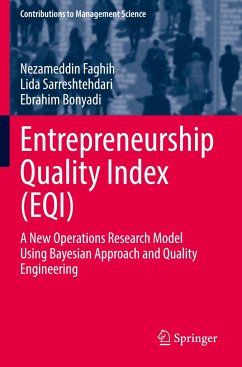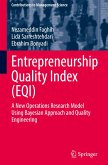This book tackles the perplexing problem of how to capture the qualitative differences that exist in entrepreneurship at any given point in time or across time, by presenting a novel qualitative index: Entrepreneurship Quality Index (EQI). This comprehensive composite index is based on recognized interactions among different factors affecting intensity and types of entrepreneurial activity, which in turn is impacting the well-being. It brings qualitative differences in entrepreneurship depending on time and space into calculation of the composite index. Besides, EQI is the missing piece of the entrepreneurship puzzle, and the quality of entrepreneurship is a significant factor that shows why less developed countries do not achieve higher levels of economic growth, despite their high rate of entrepreneurial activities.
This book does a masterful job in explaining the diversity of existing perspectives, their contributions, and their shortfalls. It applies rigorous tools of mathematical statistics and quality engineering, such as Bayes' rule, maximum likelihood estimation, six sigma algorithm, and standardization equation, to derive and introduce EQI, as a novel operations research model. It offers a number of important ideas and insights as to how the quality of entrepreneurship can be measured more accurately. It also illustrates the proposed approaches showing their efficacy across time. The proposed solutions are logical and empirically sound; they represent an important leap in thinking about the quality of entrepreneurship. Its contribution is crucial and timely - one that will be well recognized by researchers worldwide. They give a much-needed framework along with the necessary tools to evaluate and measure entrepreneurial activities.
This book does a masterful job in explaining the diversity of existing perspectives, their contributions, and their shortfalls. It applies rigorous tools of mathematical statistics and quality engineering, such as Bayes' rule, maximum likelihood estimation, six sigma algorithm, and standardization equation, to derive and introduce EQI, as a novel operations research model. It offers a number of important ideas and insights as to how the quality of entrepreneurship can be measured more accurately. It also illustrates the proposed approaches showing their efficacy across time. The proposed solutions are logical and empirically sound; they represent an important leap in thinking about the quality of entrepreneurship. Its contribution is crucial and timely - one that will be well recognized by researchers worldwide. They give a much-needed framework along with the necessary tools to evaluate and measure entrepreneurial activities.








